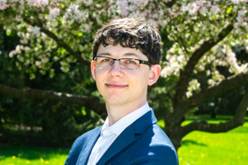Accounting Seminar(2017-13)
Topic: The Trading Impact of Closing the Shanghai Stock Exchange for Lunch
Speaker: Richard Crowley,Singapore Management University
Time: Wednesday, November 29th, 10:00-11:30 a.m
Place: Room 217, Guanghua Building 2
Abstract:
Unlike stock exchanges in the West, large exchanges in the orient close for one to two hours in mid-day for a “lunch break.” Operating exchanges in two shifts per day is a unique phenomenon for China, Hong Kong, Indonesia, Japan, Malaysia, Vietnam, Thailand, the Philippines and Turkey. The split-day trades provide corporate managers with a different factor in timing the release of accounting information. In this paper we try to understand the properties of trading in different sessions (morning vs afternoon) before we could examine different effects of accounting information arrival during different sessions. We also hypothesize that suspension of trades during the lunch hour is cultural in that the break allows traders to consult with their superiors and peers and arrive at collective judgment about adjusting their morning trading strategies for in the afternoon. We examine the split-day trades on Shanghai Stock Exchange for the period 2005 – 2013 and arrive at several conclusions: (1) Traders are less aggressive in the afternoon. (2) The performance of tail group deciles in the morning reverse in the afternoon. (3) The performance of other deciles does not reverse (in contrast to return patterns on US exchanges). (4) Top and bottom deciles have higher volatility in the afternoon as compared to the morning. (5) Traders appear to use the lunch break for two purposes: (a) to allow their brokerage firms to develop different strategies for the afternoon after discussing their morning performance with their superiors, and (b) host new clients for sales meetings at lunch. (6) Morning-to-afternoon results are very much different from afternoon-to-next-day morning.
Introduction:

Richard Crowley joined Singapore Management University in 2016. He received his PhD in Accountancy from the University of Illinois Urbana-Champaign and received Bachelor's degrees in Accountancy, Finance, and Theoretical Mathematics from the University of Illinois Urbana-Champaign in 2012. His research examines financial accounting using both archival and analytical methods. Much of his archival work deals with large sets of unstructured data (e.g., textual disclosures) using high-powered computing algorithms to address accounting issues that are otherwise infeasible to approach.
//accountancy.smu.edu.sg/faculty/profile/144766/Richard-CROWLEY
Your participation is warmly welcomed!